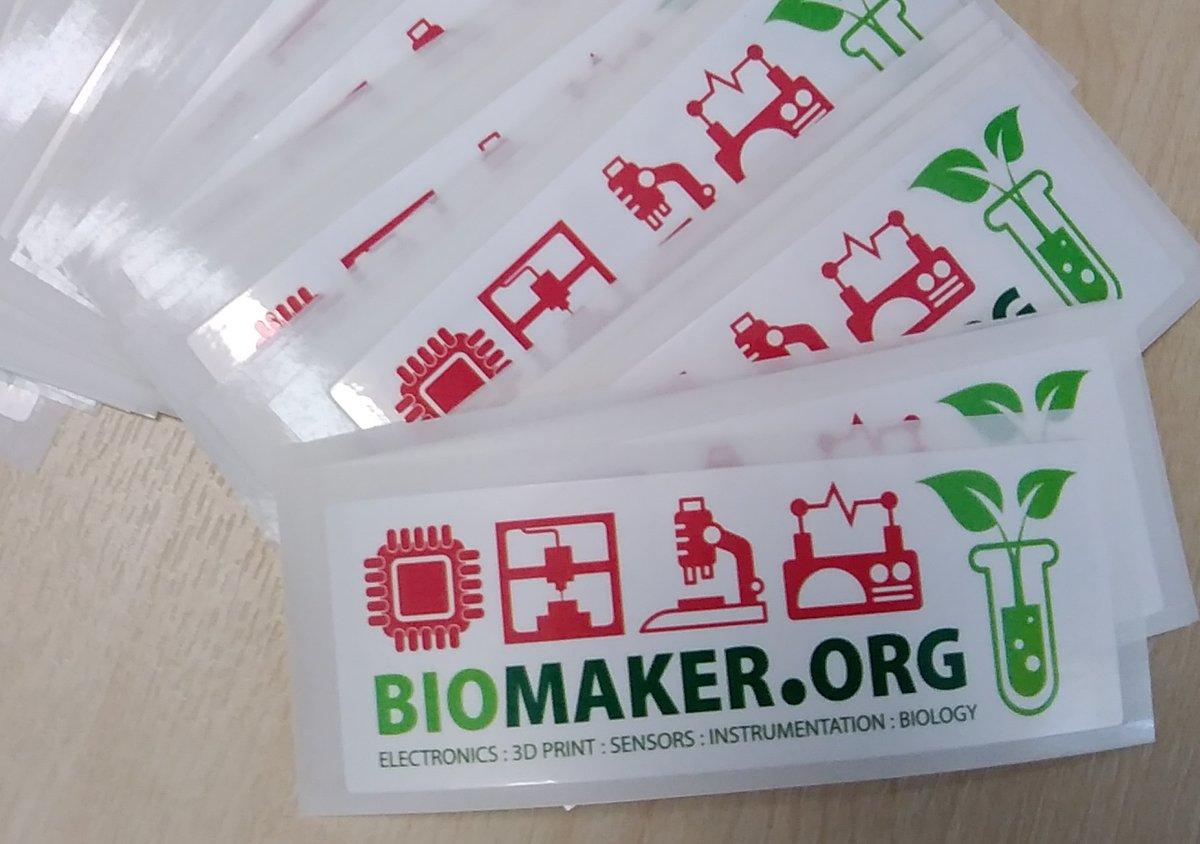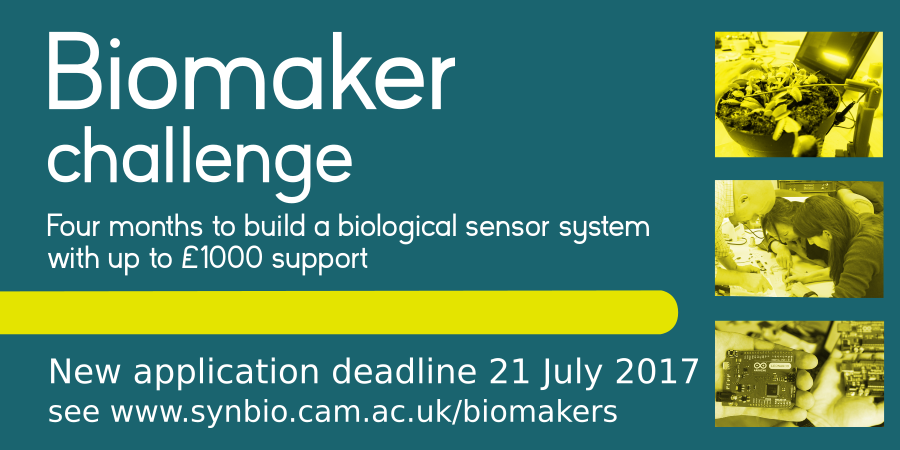
Submitted by Jenny Molloy on Mon, 10/07/2017 - 01:29
Twenty-nine Biomaker Challenge projects were funded by the SRI, OpenPlant and CamBridgSens covering a huge range of biology and engineering tasks from cell-free synthetic biology to clinical devices to lab automation solutions. Due to late interest, we have added a later deadline of 21 July.
Starting in this summer for the first time, the Biomaker Challenge is a four-month programme challenging interdisciplinary teams to build low-cost sensors and instruments for biology. From colorimeters to microfluidics and beyond, we were looking for frugal, open source and DIY approaches to biological experiments and we found them! The proposals contained a rich set of interdisciplinary project ideas from across the University of Cambridge and Norwich Research Park, with many external collaborators from local industry, the Royal College of Art and further afield.
The 29 awardees have now been announced (see full list below) and will shortly be documented on GitHub and the Biomaker.org website, where some proposals are already online.
Biomaker Challenge Coordinator Kyata Chihbalabala has recently joined the SRI for ten weeks to manage the programme and arrange training and meetups. The Biomaker Toolkits are now being distributed so watch this space for events coming soon!
Apply by 21 July for Biomaker Challenge Round Two!

Due to a rush of late interest, we have decided to open another round. You still have an opportunity to apply for a Biomaker Toolkit (worth £250) and £750 additional support for your biological instrumentation project.
Find out more about how to apply >>
Acknowledgements
Judging Panel: Dr Emre Ozer (ARM Ltd), Dr Stephanie Reichel (CRUK Cambridge Institute), Dr Dan MacLean (Earlham Institute), Prof Jim Haseloff (Department of Plant Sciences, University of Cambridge), Dr Alexandre Kabla (Engineering Department, University of Cambridge), Dr Oliver Hadeler (Chemical Engineering and Biotechnology, University of Cambridge).
Sponsors: ARM Ltd, New England Biolabs
The Funded Projects
- A cell-free sensor platform for the quantification of arsenic concentrations in drinking water.
- A Device for Real-Time Monitoring of Protein Synthesis.
- A low cost reusable microfluidic device for the detection of antibiotic resistant genes in bacteria isolated from patient samples.
- A low cost, point-of- care device to measure blood haemoglobin levels, using calorimetry and infrared spectroscopy.
- A low-cost colorimeter for accurate detection of colour changes in medical diagnostic tests
- A low-cost, pressurized liquid chromatography system for protein purification
- A microdroplet incubator to establish 3D organoids cultures from oesophageal adenocarcinoma.
- A sensor to improve the accuracy of stereotactic brain biopsies for the diagnosis of brain tumours
- An artificial habitat to investigate Boquila trifoliata mimicry
- Cheap Do-It- Yourself Small Volume UV Spectrometer for Nucleic Acid and Protein Quantitation
- Detecting alterations in ionic concentrations associated with different cellular states
- Detecting pathogens in sewage sludge
- Developing a self-regulating control system for intravenous drug administration -- using aminoglycosides as an example
- Development of an anti-TFF3 functionalized surface to capture of Barrett’s oesophagus cells
- DIY bioacoustics
- Field portable colorimeter
- Functional membrane-based integrated biosensing devices for detection and quantitation of specific nucleic acids and other biomolecules
- Handheld syringe pump with heating element
- KNOW-FLOW: A low-cost programmable blood flow system
- Low Cost Wearable Sensors Strain Sensors for illness identification via Gait, Posture and muscle usage
- Low-Cost Multispectral Imagery for UAV-based Vegetation Monitoring
- Macrophotography of fern gametophytes using a DIY focus stacking system.
- Microfluidic Turntable for molecular diagnostic testing
- OptoFlow: Optical flow rate measurement for microfluidics
- Puzzle-solving Bacterial Pet: Imaging Platform for Microfluidics-based Reinforced Learning with Motile Bacterial Cells
- Remote Environment Controller for Experiments in Extreme Environments
- Sci-Fi Cam
- Ultrasonic Plant Height System for High- Throughput Plant Phenotyping
- Real-Time monitoring of cell proliferation
Biomaker Challenge is sponsored by BBSRC/EPSRC through OpenPlant Synthetic Biology Research Centre (www.openplant.org) and the University of Cambridge Research Policy Committee through the Synthetic Biology Strategic Research Initiative (www.synbio.cam.ac.uk) and the Sensors Strategic Research Network (www.sensors.cam.ac.uk).

